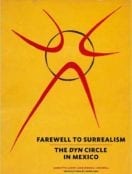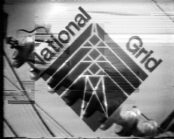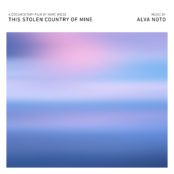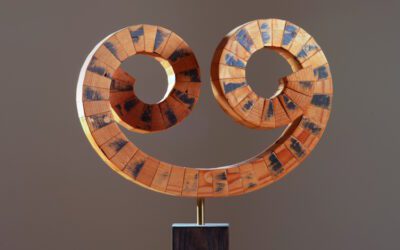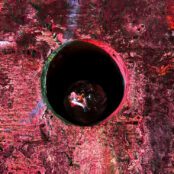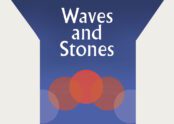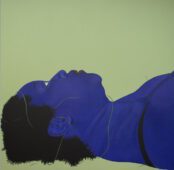[dropcap style=”font-size:100px;color:#992211;”]A[/dropcap]mon Tobin and Ninja Tune are a connected story that charts (often) the rise of breaks and avant-garde hip hop from the streets to the galleries, challenging the overculture with a positive reflective stance.
Every release on Ninja Tune was a statement: this is what we’re doing and how we see things; try it, no pressure, no elitism — although it’s probably going to make what you’ve been listening to sound a bit lame. Leading that charge was Brazilian-UK artist Amon Tobin, a fiendishly attuned breaksmith who progressed astonishingly with each release going further than his contemporaries, before reaching a solitary pinnacle with ISAM (2011) where his abstracted sound became incomparably signature. The whole album is like nothing other than Amon Tobin and to this day sounds like the final culmination of where he was going with his preceding work, and from where future releases might require deep internal changes in the artist before the effects might be noticeable. Once you’ve pushed yourself to the very edge, where do you go from there?
In conversations with Ninja over the years Trebuchet would always ask whether there was any news on the next Amon Tobin release. While there’d be a few hints, it was usually very quiet up until a press release. So in 2019 when it was revealed that not only was there an upcoming new Tobin album, but one that referenced a T. S. Eliot poem, and on a new label called Nomark, it began a conversation that led to this interview with the man himself.
Is it true that you’re not doing anything on Ninja Tune any more, or is that not correct?
Yeah, nothing really lasts forever. There’s lots of dreary reasons to do with publishing and autonomy. But, in the end, times change and people and labels change. I’ll always have a warm spot in my heart for the people at Ninja, but basically I just wanted to keep hold of my publishing, and that would have been very difficult for them to manage on a business level. So it just made more sense.
It’s really terrifying doing this, but because there’d been such a long time since my last record, during that time, I spent every moment of it developing all these different projects and different lanes, different fields of interest. So having it kind of all come under this label was a really interesting prospect, the idea of having a sort of — it’s not even a label, really, it’s more like a vehicle for me to put all these different things out under one sort of umbrella. That would be practically impossible as well on a label that didn’t belong to me, because, you know, labels have other artists, and my output is kind of unrelenting.
I love the idea of putting it out like that at a pace I feel comfortable with, structuring the releases, when they’re going to happen, how they can happen. It’s a new venture for sure, but yeah, I’m equally terrified and excited by the prospect.
You’re diving into more of the administration part of it too, I imagine. So that’s possibly a blessing and a curse.
I’m really lucky, I have a really great team. And, I’d be fucked if it was just me, I really would, because I have no business sense whatsoever. My only field of expertise is the music I make, so it’s very limited; I don’t know how to sell it, I don’t really know how to talk about it, or how to promote it. So I have these wonderful people that are helping me do that. There’s about four of us now, and we have obviously the logistical side, the legal side of it and the PR and marketing side, but you know, there’s a core of three or four of us that make it actually happen instead of just being a sort of a fantasy in my head.
You’ve managed to keep it going for a while so it must be pretty solid.
It is of course a giant gaping financial hole, but that’s the nature of the music industry. It was never going to be a good business move, that’s for sure. But yeah, creatively, it’s been really well received and I can’t complain on that level at all and it’s fine. We’re certainly not making any money, in fact we’re losing a lot of money, but it’s been about a year, and the response to it has been amazing. So yeah, I’ve got no complaints at all.
This interview’s put together on the auspice of the latest Two Fingers release. Just to recap, when we last spoke, we talked about the Two Fingers releases as well. You’ve got more challenging or more avant-garde work, which at the time was ISAM and you were just prefacing Dark Jovian at that stage. And you said the Two Fingers stuff happens like a release valve for you; you’ll be deep in sound construction or whatever methodology that you explore with each release then as a little break for yourself, you’ll do a bit of Two Fingers. You said it was a strange process where a lot of the techniques and sounds that you’ve been working on would kind of bleed into a Two Fingers release, but it’s a bit more structural as a functional form of music-making. Is that still the case with Two Fingers, or would you say it’s taken on a bit more of its own entity?
I think I might have been underselling you a little bit in that interview, because it’s the third album now, so the last thing I want to do is frame it as some kind of side project or dabbling. Because, like with all the aliases, what they really are is a sort of lane. I think what tends to happen with a lot of creative people is that they have various interests, and some of them are kind of shelved as they focus on what they’re known for. What I wanted to do was to perpetuate those lanes, so develop them in isolation, rather than having a situation where, oh, I’m known for this kind of music, and everything else is kind of like a little vanity project. It’s more like I’ve been developing all these things for years.
Like, same with Only Child Tyrant and the other things we’ve got coming out on Nomark; there are things that I spent years and years developing, and they happen in tandem to what I’m doing. It’s certainly still true that Two Fingers is very much a release valve because it’s quite immediate, and it did initially start as a kind of antidote to my more on-the-spectrum kind of noodling, as my own stuff got weirder and weirder, I guess. And the things that I wanted to just play in clubs, which is something I’ve been doing since the 90s, going out as a DJ, that music became more and more divorced from the stuff I did under my own name. I thought it was important to give it a little space of its own. And so that’s what it is. So yeah, it’s still very much music that I find much more immediate, but I’m not laughing at the genre or dabbling in it; I’m taking it seriously and I’m trying to make it as good as I can.
Given the variety under the Amon Tobin name was there really a need to use different monikers?
It’s arguable; a lot of people would say that there is a line you can draw from the earliest releases under that name, right through to ISAM. But to be honest, the majority of people with every single album I put out saw enormous changes from the previous work to the next work. So it’s just not something… I mean, I can have a limited concern for that. It’s about objective.
My objective isn’t really even to put music out, my objective is to try and get a sort of personal understanding of music and to explore it artistically and to discover and learn things. The end result of that is whatever album comes out. But I can’t do it the other way around, where I’m trying to think, ‘Well, fuck, I’ve got to work within this framework and somehow make it make sense to people hearing it.’ Because I don’t know what makes sense to people anyway. The lines people draw between things is kind of outside my control. But I can at least make some effort to delineate between things that are clearly different pursuits. For instance, Only Child Tyrant, you could track that back to tracks like “Get Your Snack On” from Supermodified very clearly. But what I’ve done is I’ve taken that particular sort of sound or aesthetic, and tried to develop it further in that direction, give it its own name. That’s really what’s happened. You know, I did this little podcast that explains things a lot better. It’s about change, what happens, people’s expectations, and your own reasoning behind change and all of that.
Even from the very beginning, there’s been very clear connections with literature in your work, such as quotes by Lévi-Strauss in Bricolage. And then Permutation and Supermodified were kind of riffing on your exploration of sampling, and then ISAM. Fear in a Handful of Dust is a line from T. S. Eliot. I guess at the time people were saying it was a literary form of sampling that Eliot was using in his approach to modernist poetry. Is that where you were taking it, or was there something else in that title? Are all the titles of your albums based on a methodology that you’re approaching, or is it something else?
It’s really loose. Honestly, I don’t care about track titles or album titles at all. Supermodified was written on a shoe box in my studio. I mean, my friend Joe came up with the name for Fear in a Handful of Dust. I’d read “The Waste Land” at school but I hated it because I hated school. The thing is when I read it now, I couldn’t really find a more perfect fit for the record, because for the exact reasons you mentioned. I think when you try and make music it’s because you don’t really have the words, right? So when you try and give something a word or a name to describe it in some way, you get as close as you can. But that’s about as far as it goes. I mean, I wish I could say there was more.
I’m kind of a Pink Floyd liner notes reader I suppose!
That’s great, though, and it’s nice, because I like to have a certain amount of ambiguity in these things so that people do that. So it’s great.
On the opening track of Long Stories, “One Shy Morning”, the tones there sound like it’s almost a remembrance back to some of your 90s albums (even though the track goes somewhere completely different). Like you said about the Only Child Tyrant record, are you starting to reference yourself a little bit and play with those ideas?
There was a self-awareness in my process. I think what I realised during ISAM was that I’d become very preoccupied with a personal technical achievement in some way or another, and having a sort of very rigid objective I was trying to reach. And it’s very satisfying to reach those objectives, but there is a certain amount of suffocation of the creative process when you do that. So what I tried to do with that album in general was to let in imperfection again, because I realised that I had lost a little bit of the spontaneity of the release of control, you know, that you get when you’re not trying to control every conceivable aspect of something. And so, the whole record is a lot more to do with very simple instruments really; I wasn’t creating algorithmic instruments and exploring deep synthesis. The record was really about what melodies I want to hear. It was guided much more by feeling, I guess. When I do that I gravitate towards a certain kind of sound that might sound more familiar, than when you kind of hear someone trying to push something.
Last time we spoke, I joked that a lot of people had remarked on the glacial, technical nature of your work, and that they thought it was quite cold and unemotional. You were like, ‘I have no idea what they’re talking about. I’m fine. My work’s hugely emotional.’
Yeah. But that’s a personal thing. I always think of Kraftwerk as so deeply emotional, even though it was very simple and synthetic music, but it felt like that sort of sad robot syndrome, you know, of someone with limited expressive resources, trying to say something. And I feel like that idea is so romantic and I wonder if maybe sometimes the robot takes more precedence over the thing it’s trying to say. For me, I had lots of emotion invested into ISAM. But that’s not to say that anybody could penetrate through to feel it. But again, that’s not any concern of mine, right? I’m going by what I’m feeling; it’s a really selfish endeavour, always. So yeah, maybe this record is more porous, maybe things like “One Shy Morning” you can penetrate through a bit easier. That’s not to say that there was any less emotional value invested in ISAM, it might have just been a bit more opaque. I don’t know.
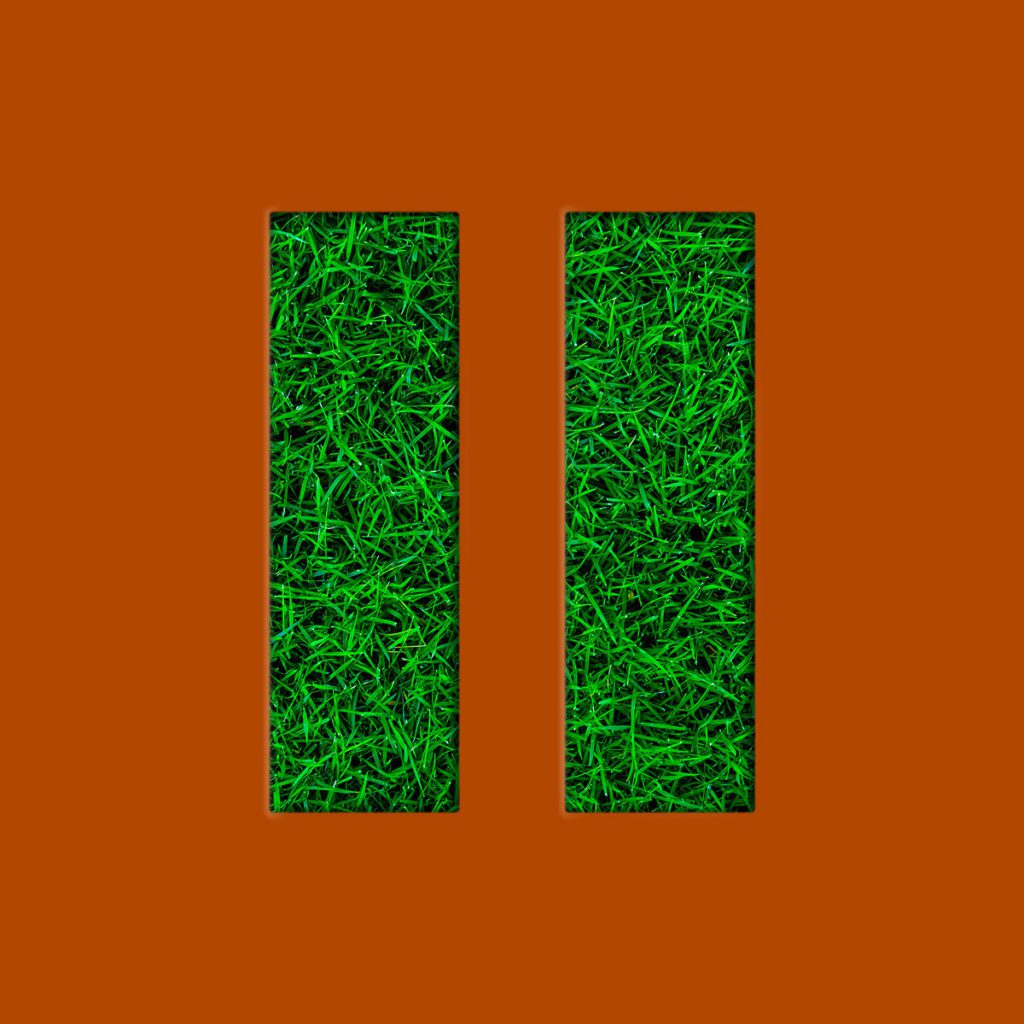
I’m trying to be, as awful as it sounds, in whatever moment I’m in. It’s as close to a meditative thing as I get. I don’t meditate or do any of that, but making music is about my effort to try and lose myself, and so I think it might be counterproductive for me to be looking backwards. Oh my God, that would be terrifying; imagine the regrets. Sounds awful.
You’ve collaborated on and off throughout your career. One of the first collaboration EPs I got of yours was Anger with Ryuichi Sakamoto. I don’t know if he just sent you some stuff, but Ghostcards did sound like a collaboration in there. Can you talk about that process a little bit?
Yeah, Ghostcards was definitely a collaboration; it was Thys from Noisia and myself. We’ve known each other for many years, and we thought it was quite funny, because both of us at least in that sort of noisier world are known for quite heavy bass music. So we had a great time making emo, pretty stuff. But that’s the thing, isn’t it? Everyone has so many different interests and I think even people from a group like Noisia have very varied musical tastes, and it’s nice to have a chance to explore that with someone, you know, see his sensitive side.
They’re a very interesting group. They’re heavy and bass-y, but there’s a lot of pretty sophisticated stuff going on there too.
Yeah, definitely. Drum ’n’ bass is such an interesting genre in the sense that it’s so competitive and technically driven, and it seems really healthy for that, to me. Regardless of how popular the genre is, or isn’t at different stages, there’s an effort to make things like the perfect kick and the perfect snare and the right amount of this and the right amount of that really cut through in a specific venue. I’ve always found that fascinating, because my own interests in production are very different, but I appreciate the aspiration to get things right. It can also limit you in some ways, but that’s more of a new discovery for me, though, that idea of maybe having technicalities get in your own way. And maybe sort of embracing imperfection is an interesting thing in itself.
Two Fingers / Fight! Fight! Fight!
Released on Nomark
https://www.nomark.net/
Update: Amon Tobin is set to release an Psyche Folk Record!
—Press Release—
NEW AMON TOBIN PROJECT FIGUEROA DEBUT ALBUM
THE WORLD AS WE KNOW IT COMING JULY 31 FROM NOMARK RECORDS
‘Imperfect and Beautiful’ Experimental Electronic Psych-Folk Album
A Decade in the Making, Brought to Fruition by Legendary Producer Sylvia Massy
Amon Tobin and Nomark Records announced today the release of the debut album from Figueroa set for release on July 31. It is a recording from the mind of Amon Tobin born from a very different place.
The World As We Know It is an electronic album made in the absence of instruments. At the same time, it is a guitar/vocal album and entirely human. And so we have something of an anomaly.
Amon first recorded these songs during an isolated period in the woods of northern California. It was an exploratory process, much to do with learning about harmony and (relatively) traditional songwriting. A personal exorcism of sorts, he externalized an array of experiences and organized them into words.
At the time of writing what was to become Figueroa, Tobin had no particular ambitions for the work. Describing his singing voice as “a vague idea of what a voice might sound like,” the tracks remained personal as they sat in state for almost a decade after they were first scratched out in a cabin in the woods.
Eventually Amon sent the material to the legendary producer Sylvia Massy (Tool, Prince, Red Hot Chili Peppers, Johnny Cash, Annie Mac)hoping she might find someone who could perform the material. Sylvia was thrilled by the songs she heard. Rather than delegate them to polished musicians, she got on the next plane to LA and booked a session at the famous Capital Studios at Capitol Records in Hollywood for Amon to record the songs properly under her guidance. The result is The World As We Know It.
Is Figueroa psych-rock? Electronic folk? How is there guitar with no guitarist? We have no idea. The World As We Know It is imperfect and beautiful. It is full of darkness and wonder. It’s surprising and confounding. Better sometimes to not ask questions and just listen to the music.
TRACK LIST:
Weather Girl
Put Me Under
If You Knew My Name
The World As We Know It
Do Right
Better Run
Don’t Be A Bitch
Back To The Stars

Ex-London based reader of art and culture. LSE Masters Graduate. Arts and Culture writer since 1995 for Future Publishing, Conde Nast, Wig Magazine and Oyster. Specialist subjects include; media, philosophy, cultural aesthetics, contemporary art and French wine. When not searching for road-worn copies of eighteenth-century travelogues he can be found loitering in the inspirational uplands of art galleries throughout Europe.



